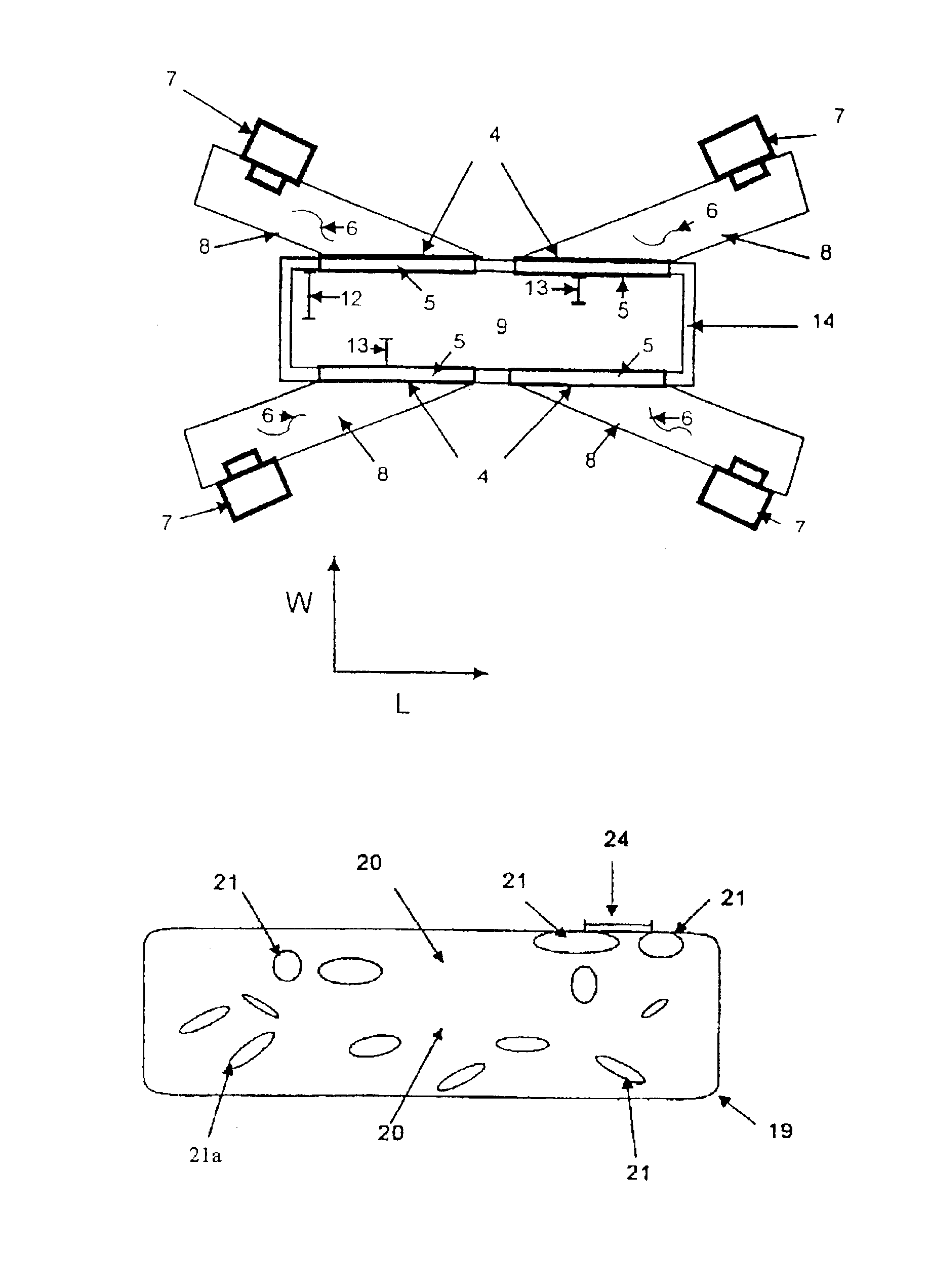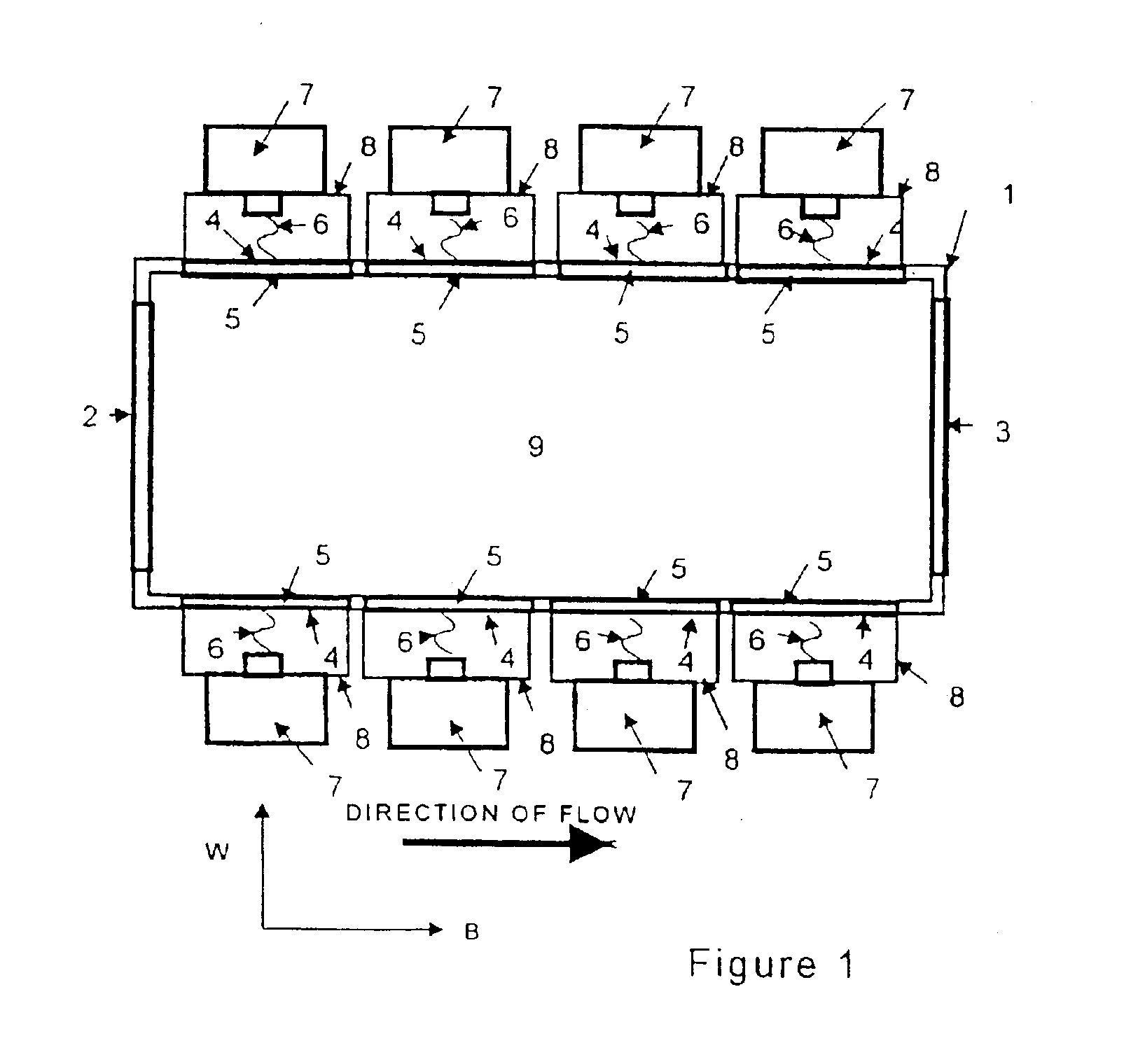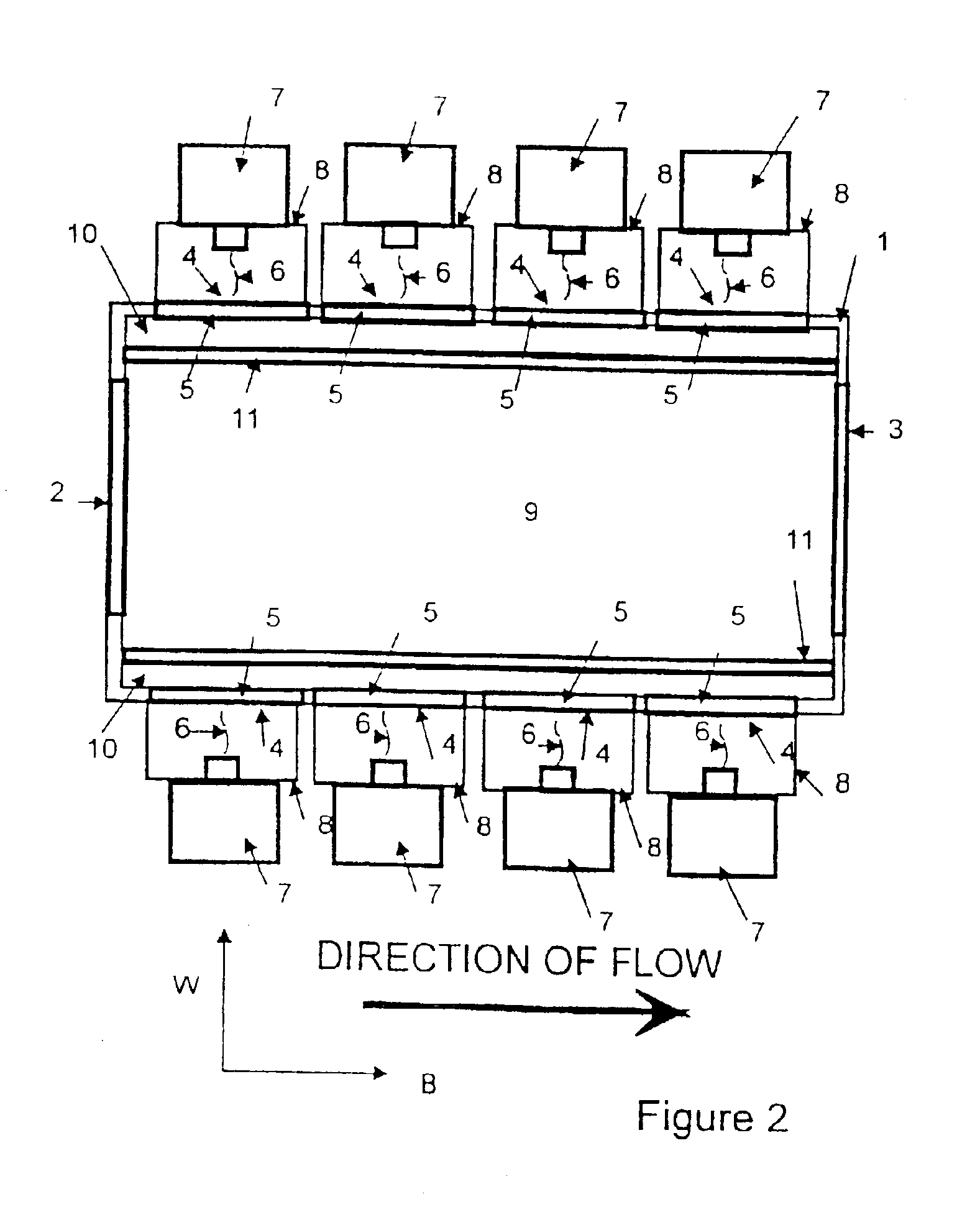Field concentrators for artificial dielectric systems and devices
a field concentrator and dielectric technology, applied in the direction of electrical/magnetic/electromagnetic heating, separation processes, physical/chemical process catalysts, etc., can solve the problems of limited above-effects and the inability of the susceptor's structure to allow the applied energy to penetrate into the entire volume, etc., to reduce the cost of operating such a device, reduce the cost of operation, and reduce the effect of efficiencies
- Summary
- Abstract
- Description
- Claims
- Application Information
AI Technical Summary
Benefits of technology
Problems solved by technology
Method used
Image
Examples
Embodiment Construction
[0085]This invention is a device that uses a gas-permeable structure for a susceptor of electromagnetic energy to react gases for desired products or to treat pollutants for producing clean air which can be discharged into the environment in accordance with the law of the land. The device has a specific cavity geometry, location where the applied energy from a source enters the cavity, a susceptor that is designed by the depth of penetration of the susceptor, and a means to scale-up the device for larger flow rates of an air stream without changing the susceptor's interaction with the applied energy or depth of penetration of the susceptor because the device is designed to increase the size of the device by a near linear scale from the location where the applied electromagnetic energy enters the cavity and the cavity's geometry.
[0086]Another aspect of this invention is a heat transfer process that increases the efficiency of the device.
[0087]Another aspect of this invention is a gas...
PUM
| Property | Measurement | Unit |
|---|---|---|
| size | aaaaa | aaaaa |
| size | aaaaa | aaaaa |
| pressure | aaaaa | aaaaa |
Abstract
Description
Claims
Application Information
 Login to View More
Login to View More - R&D
- Intellectual Property
- Life Sciences
- Materials
- Tech Scout
- Unparalleled Data Quality
- Higher Quality Content
- 60% Fewer Hallucinations
Browse by: Latest US Patents, China's latest patents, Technical Efficacy Thesaurus, Application Domain, Technology Topic, Popular Technical Reports.
© 2025 PatSnap. All rights reserved.Legal|Privacy policy|Modern Slavery Act Transparency Statement|Sitemap|About US| Contact US: help@patsnap.com



